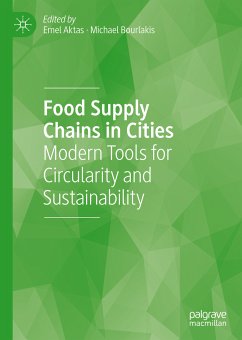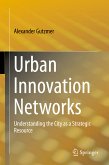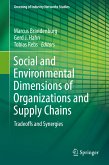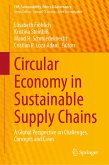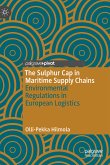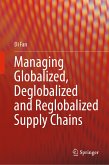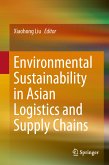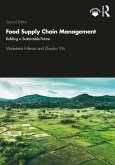This book analyses the food sector which has economic and political significance for all countries. A highly fragmented and heavily regulated sector, it has become increasingly complex owing to globalisation and geographical decoupling of production and consumption activities. The urban population of the world has grown from 746 million in 1950 to 3.9 billion in 2014 and more than 70% of the population is anticipated to be living in urban areas by 2050. Food supply chains play a vital role in feeding the world's most populous cities, whilst underpinning transportation, storage, distribution, and waste management activities for the sustainability of the urban environment. That is why, this book presents the latest research on food supply chain management with a focus on urbanisation. The contributions involve food distribution in cities, food waste minimisation, and food security with a focus on models and approaches to achieve more sustainable and circular food supply chains.
Dieser Download kann aus rechtlichen Gründen nur mit Rechnungsadresse in A, B, BG, CY, CZ, D, DK, EW, E, FIN, F, GR, HR, H, IRL, I, LT, L, LR, M, NL, PL, P, R, S, SLO, SK ausgeliefert werden.

